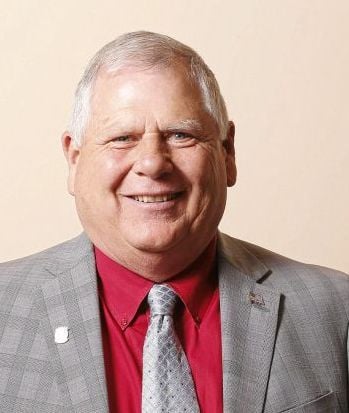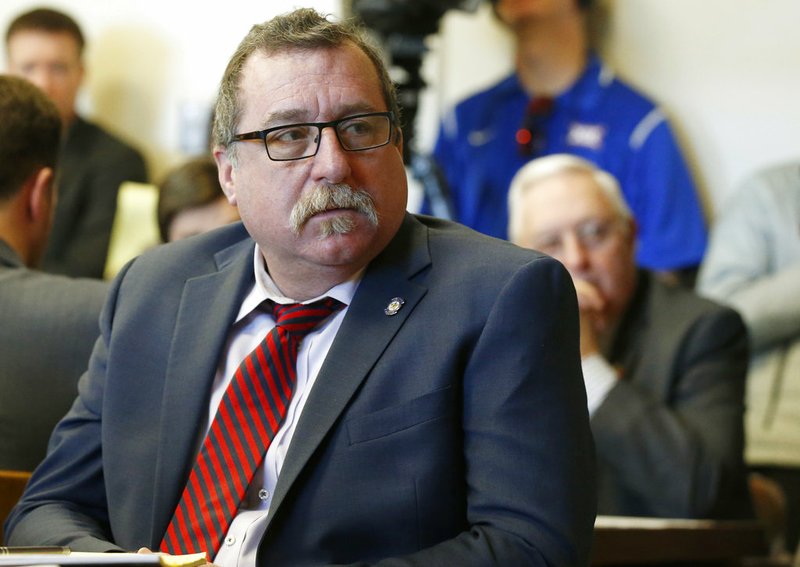
A review of the legislative process that created the Oklahoma Energy Discrimination Elimination Act, a 2022 law now suspended because of a Judge’s ruling in a lawsuit filed by a state retiree, revealed there was little interest in the economic impact of the law—other than protecting the state’s oil and gas industry.
It appeared to be a rush to join in the support for Oklahoma’s number one industry from financial institutions that discriminated against fossil fuel producers. Even House and Senate staffers, whose job it is to wage a fiscal analysis of such bills, offered little detail.
A fiscal analysis offered by the Senate Fiscal Staff in May of 2022 stated, “HB 2034 declares that the oil and gas industry is a vital part of the economy of Oklahoma. The measure modifies the requirements of state contracts in excess of $100,000. Fiscal impact is undeterminable. There would likely be a considerable administrative cost to the Secretary of State to comply with Section D.”
The Staff said the Fiscal year 2022 impact was “undeterminable” and the full-year impact was also “Undeterminable.”
In yet another report from the House staff, the Fiscal Analysis stated, “The measure is currently under review and impact information will be completed.”
The fiscal impact of the enforcement of the law by State Treasurer Todd Russ is at the heart of the lawsuit brought by Don Keenan, the former Oklahoma Public Employees Association President. He contended at the time he filed suit in November 2023 that the enforcement of the Act harmed the pensions of state retirees.
His claims were further supported in a study supported by the Oklahoma Rural Association. The study claimed local governments were harmed to the tune of $185 million.
Yet during the legislative process that led to the Act being signed into law by Gov. Kevin Stitt, legislators apparently asked no questions about how such a law might affect the state pensions. Nor were there questions focusing on the economic impact of the Act, not in just protecting the fossil fuel industry in the state but of the consequences on the pension systems that would be affected.
Under questioning during a hearing by the Senate Aeronautics and Transportation Committee, Sen. Mark Allen, the Senate Author of HB 2034 stated, “If you read this bill—there are three to four places in this bill that protect the pension systems.”

One part of the bill indeed makes it clear there is such a protection, but it apparently has not been used by any of the state pension systems.
“A state governmental entity may cease divesting from a listed financial company if clear and convincing evidence shows that
the governmental entity has or will suffer a loss in the value of assets; or an individual portfolio that uses a benchmark-aware strategy would be subject to an aggregate expected deviation from its benchmark as a result of having to divest from the financial company.”
He was asked only one question and there was no debate on the bill in the Committee and the measure passed 11-2 and was sent to the full Senate.
Allen is no longer in the Senate after being term-limited. In the Senate, the measure was passed 38-3 with no debate.

In the House, where the Act was approved 60-14, House author Rep. Mark McBride faced several questions from Rep. Andy Fugate, a Democrat from Del City. Fugate was the lone Representative to debate against the measure as well.
He raised questions, but none about the potential impact on state pension systems and pointed out the entire bill did not include any reference to Oklahoma energy companies.
“I’m puzzled after reading all 19 pages of this bill—there is zero references to Oklahoma energy companies. It’s puzzling in a bill that should be about protecting Oklahoma’s number one industry.”
Rep. Fugate later charged in his debate against the Act that it was a bill drawn up by a national legislative group.
“This is from ALEC, a bill mill. They’re not about protecting Oklahoma’s oil and gas—it’s about protecting their oil and gas. It’s embarassing and it’s rediculous the Senate would send us language from a bill mill,” said Fugate during the House debate.
ALEX is the American Legislative Exchange Council and Fugate pointed out how on page 9, part of the bill came from a similar measure in Indiana, page 10 included part of a West Virginia bill and page 8 included part of a Kansas law designed to protect the oil and gas industry. He said it was a “fill in the blanks” type of legislation.
Rep. McBride’s response? He used less than 60 seconds to ask for green votes to appear on the House vote board “in support of the industry that built Oklahoma.”
After the governor signed the act into law, Sen. Allen issued a statement.
“Oil and gas is the backbone of our state’s economy, and it’s crucial that we do all in our power to fully support this industry,” Allen said. “I’m proud to have carried this measure that will make our state free of discrimination against the fossil fuel industry, and am glad my colleagues see the importance of standing up against corporations that put political ideology ahead of the interests of our taxpayers, shareholders and residents.”
McBride said the Act was “good for Oklahoma” and “Oklahoma is the state that fossil fuels built.”




